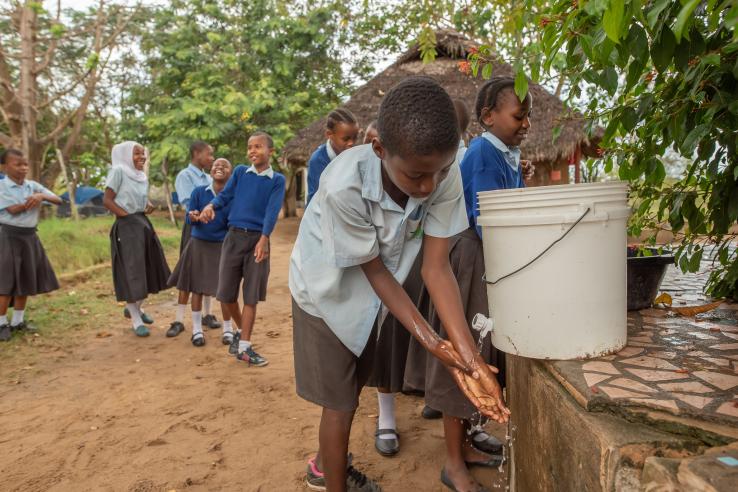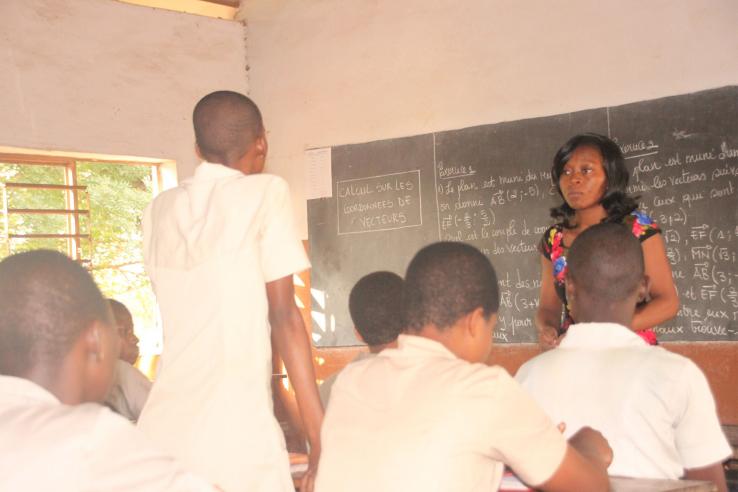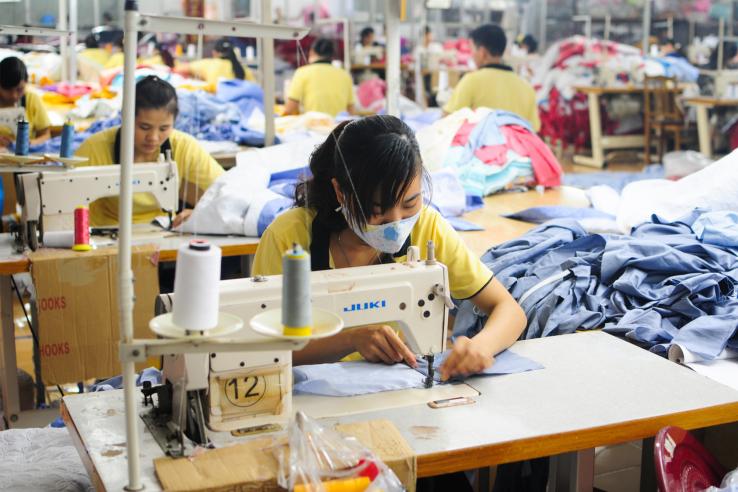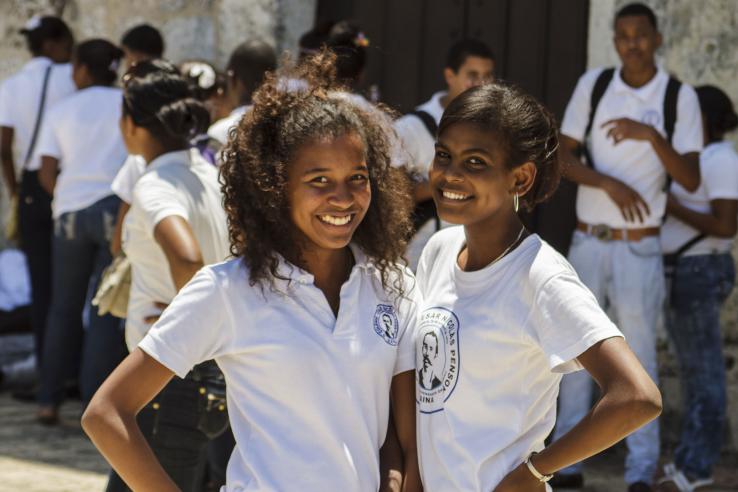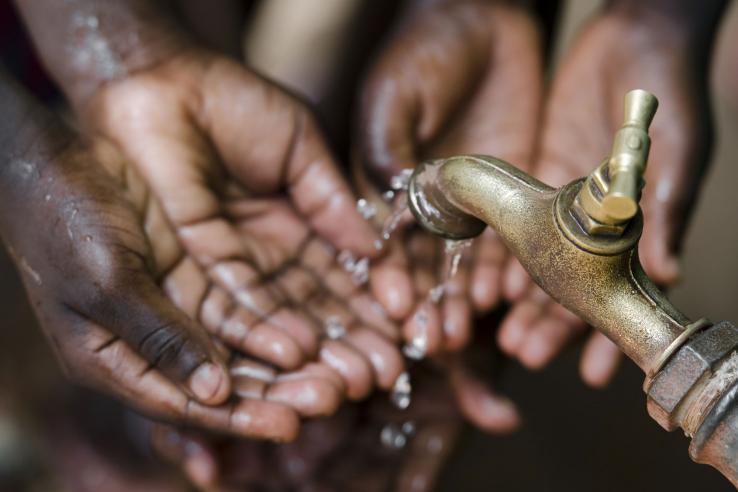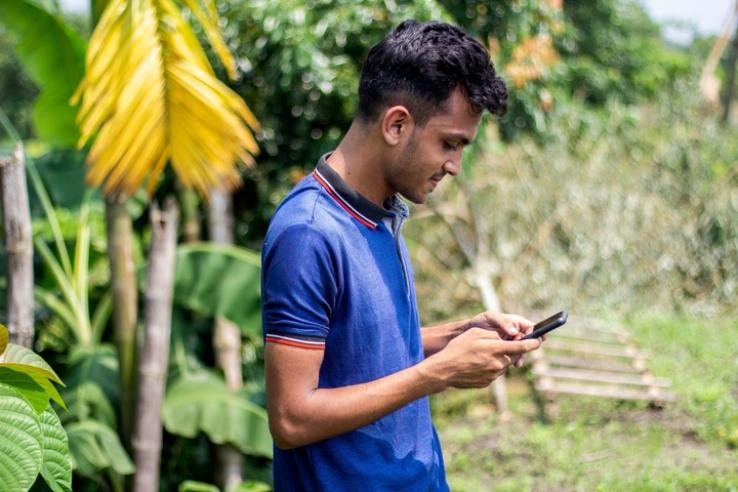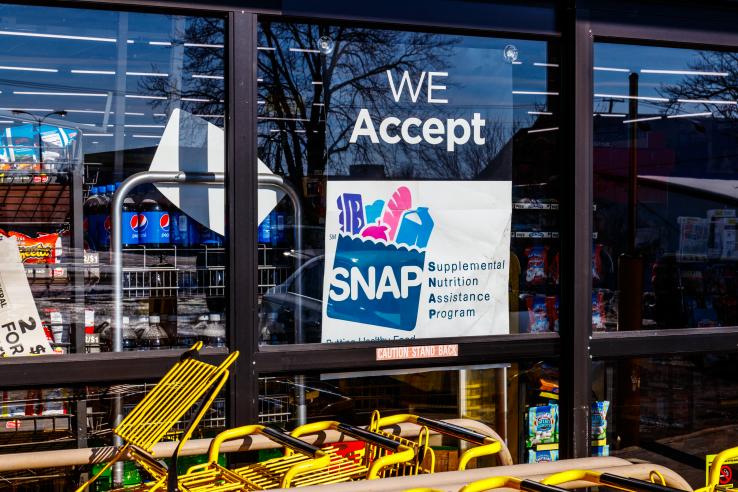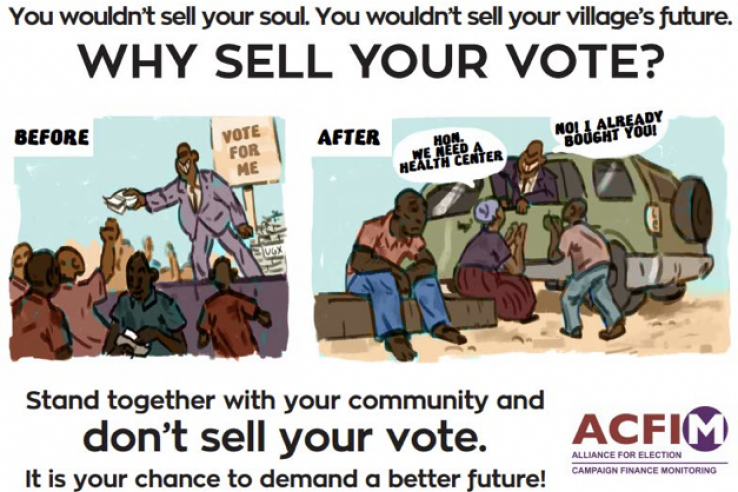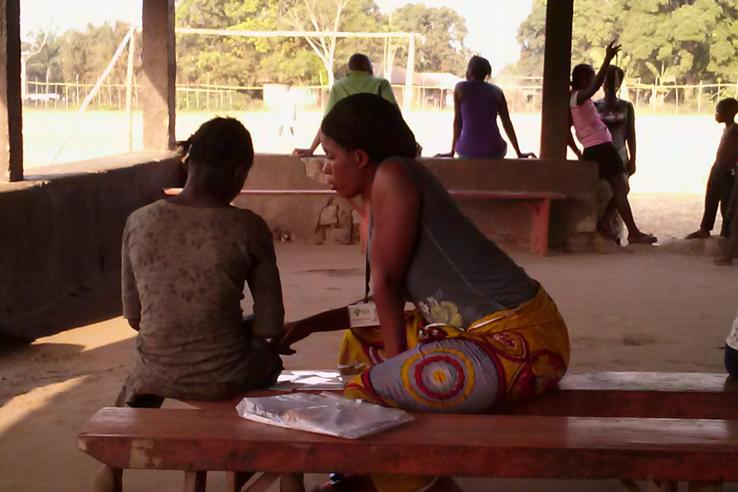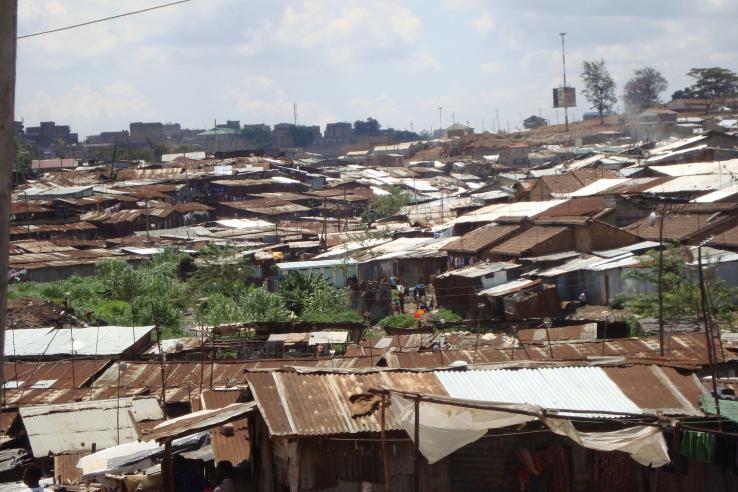Displaying 5251 - 5265 of 8489
Evaluation
Researchers conducted a randomized evaluation to measure the impact of sanitation and hand-washing promotion campaigns, alone and in combination, on household knowledge, behavior, and child health (diarrhea prevalence, stunting, wasting, and anemia). While the program improved hygiene and sanitation behavior, it had no impact on child health outcomes.
Evaluation
Researchers are evaluating the impact of temporary supplemental math teachers on girls’ numeracy skills, professional aspirations, and early career labor market outcomes.
Evaluation
Researchers conducted a randomized evaluation to test whether organizing short learning sessions for villagers about early adopters’ use of a flood-tolerant rice seed variety, Swarna-Sub1, impacted other farmers’ adoption of it. These “farmer field days” were a cost-effective strategy to improve farmers’ learning about Swarna-Sub1 and increased their take-up of Swarna-Sub1 in the next planting season by 40 percent.
Evaluation
Researchers evaluated whether participating in the law-making process influenced firms’ compliance with regulations in Vietnam. Firms that participated in the drafting of new regulation had more positive views of the government’s regulatory authority, were more likely to allow auditors to examine facilities, and ultimately improved compliance with factory floor regulations.
Evaluation
Researchers evaluated an accountability workshop program, which educated citizens on the distribution of extractive industry tax revenues and the formal means of local political participation. The program had mixed results on local government quality, increasing the likelihood of initiating recall against poor-performing mayors but also increasing civil unrest. The workshops also reduced involvement in participatory budgeting, as well as reducing mayors’ discretionary spending efforts.
Evaluation
Researchers are evaluating the impact of providing information on national rank and scholarships can reduce dropout among high-performing students.
Evaluation
Researchers are using a randomized evaluation in Mexico to study the incentives media stations face when choosing to provide voters with indicators of their incumbent party’s performance in office.
Evaluation
In partnership with the Ethiopian Development Research Institute (EDRI), researchers are providing report cards that document citizen satisfaction with a range of public services to various levels of government officials to measure the impact of information and accountability on public service provision.
Evaluation
In the Philippines, researchers conducted a randomized evaluation to measure the impact of an evangelical Protestant religious values and theology education program on individuals' economic and subjective wellbeing.
Evaluation
Researchers partnered with bKash, one of the leading mobile money providers in Bangladesh, to evaluate the impact of targeted training programs on mobile banking uptake among migrant households. Training increased migrants’ and their families’ adoption of mobile banking, with women adopting the technology at similar rates to men, shrinking the gender gap.
Evaluation
Researchers are conducting a randomized evaluation to test the impact of text message reminders of key recertification processes and deadlines as well as access to paperwork assistance on enrollment in the SNAP program.
Evaluation
During the 2016 Ugandan elections, researchers conducted a randomized evaluation of an anti-vote-buying campaign to study voter behavior and electoral outcomes. Overall, the campaign did not reduce the extent of vote buying, but it had substantial effects on electoral outcomes.
Evaluation
Researchers evaluated the impact of a program in Sierra Leone called Empowerment and Livelihood for Adolescents (ELA) that aims to address this problem by bundling health education, vocational skills training, and micro-credit. Researchers found that, while girls experienced higher teen pregnancy and lower school attendance post-Ebola, ELA clubs mitigated many of these negative effects.
Evaluation
In slums near Nairobi, Kenya, researchers are testing how subsidizing the cost of connecting to the sewer system and providing information about the health benefits of improved sanitation affects the number of landlords who connect to the sewer system.
Evaluation
Researchers are conducting a randomized evaluation to test the impact of being offered a summer job through Philadelphia’s WorkReady program on outcomes related to criminal justice involvement, employment, and education.
